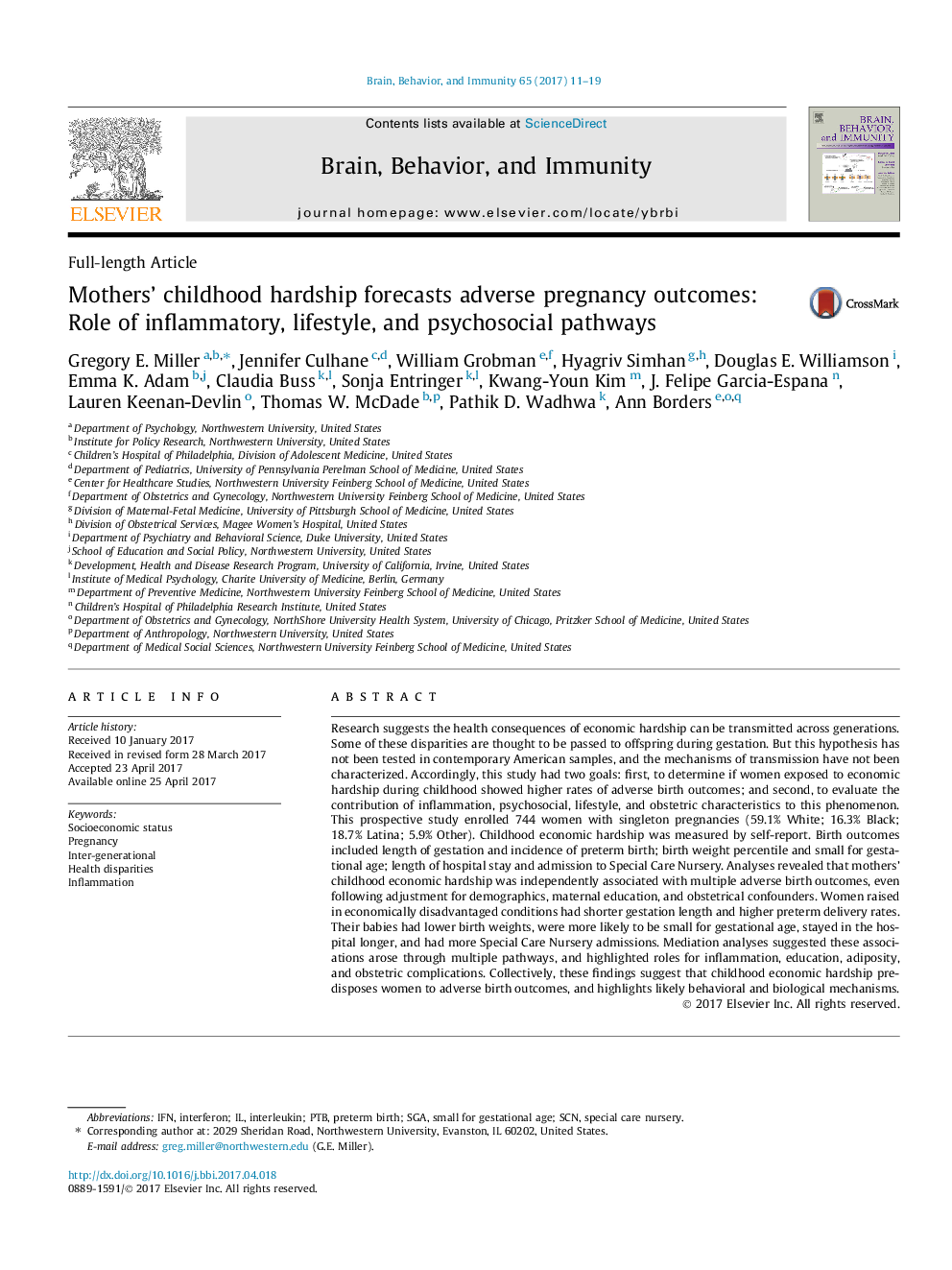| کد مقاله | کد نشریه | سال انتشار | مقاله انگلیسی | نسخه تمام متن |
|---|---|---|---|---|
| 5040577 | 1473902 | 2017 | 9 صفحه PDF | دانلود رایگان |
- Women raised in families with economic difficulties had worse pregnancy outcomes.
- They were more likely to deliver preterm babies who were small for gestational age.
- Those babies had longer hospital stays and more admissions to special care nurseries.
- Mediation analyses suggested these risks arose through multiple pathways.
- Inflammation, education, adiposity, and obstetric complications all had roles.
Research suggests the health consequences of economic hardship can be transmitted across generations. Some of these disparities are thought to be passed to offspring during gestation. But this hypothesis has not been tested in contemporary American samples, and the mechanisms of transmission have not been characterized. Accordingly, this study had two goals: first, to determine if women exposed to economic hardship during childhood showed higher rates of adverse birth outcomes; and second, to evaluate the contribution of inflammation, psychosocial, lifestyle, and obstetric characteristics to this phenomenon. This prospective study enrolled 744 women with singleton pregnancies (59.1% White; 16.3% Black; 18.7% Latina; 5.9% Other). Childhood economic hardship was measured by self-report. Birth outcomes included length of gestation and incidence of preterm birth; birth weight percentile and small for gestational age; length of hospital stay and admission to Special Care Nursery. Analyses revealed that mothers' childhood economic hardship was independently associated with multiple adverse birth outcomes, even following adjustment for demographics, maternal education, and obstetrical confounders. Women raised in economically disadvantaged conditions had shorter gestation length and higher preterm delivery rates. Their babies had lower birth weights, were more likely to be small for gestational age, stayed in the hospital longer, and had more Special Care Nursery admissions. Mediation analyses suggested these associations arose through multiple pathways, and highlighted roles for inflammation, education, adiposity, and obstetric complications. Collectively, these findings suggest that childhood economic hardship predisposes women to adverse birth outcomes, and highlights likely behavioral and biological mechanisms.
Journal: Brain, Behavior, and Immunity - Volume 65, October 2017, Pages 11-19
